#EmissionRegulations
Biden's EV Strategy is More Stick Than Carrot
There are competing philosophies when it comes to shifting the market to electric vehicles.
There’s the free-market philosophy, which says the market will get there on its own. There’s the incentive philosophy, which suggests incentivizing consumers will accelerate the transition away from the internal combustion engine. Consider that one to be the carrot approach.
Finally, we have the philosophy that if regulations don’t force automakers to make more EVs, they won’t, at least not quickly enough to address climate change. The free market and/or incentives won’t be enough. Consider this to be the stick.
Guess which philosophy President Joe Biden seems to be embracing?
Gas War: California Regulators Say Biden Should Embrace State's Emission Plan
While multiple states launch mandatory election recounts and President Trump throws around lawsuits like confetti Joe Biden and the mainstream media are preparing for his ascension from regular old man to Leader of the Free World — though that title doesn’t seem to get much play these days. Biden has already started holding meetings with foreign leaders and experts on how to go about heading the United States. Apparently, there’s even been some progress on how to govern the nation.
On Thursday, California Air Resources Board (CARB) Chairwoman Mary Nichols said the state’s arrangement with major automakers over fuel efficiency requirements would be ideal for the presumed Biden administration — which has promised to implement some of the most ambitious emissions standards the world has ever seen. Nichols also expressed excitement at the possibility of heading the U.S. Environmental Protection Agency (EPA) under a Biden presidency and is reportedly under serious consideration for the position.
Trump Officially Nominates Andrew Wheeler to Head the EPA
President Donald Trump nominated Andrew Wheeler as administrator of the Environmental Protection Agency on Wednesday, setting him up to permanently fill a position he’s already occupied since July.
Trump praised Wheeler in November his “fantastic job” as acting administrator of the EPA following the July 2018 resignation of the agency’s former scandal-ridden head, Scott Pruitt. This month, the president submitted Wheeler’s formal nomination to the Senate. There’s still a ways to go before the ex-lobbyist’s confirmation, though, as the Senate will no doubt be critical of his relatively recent ties to the coal industry.
Endless Pressure and Public Scandal Leads to Pruitt's Resignation as EPA Head
Environmental Protection Agency Administrator Scott Pruitt, who spearheaded the Trump administration’s initiative to roll back Obama-era fuel economy standards for light vehicles, has resigned. Even after assuming the position, Pruitt remained a tough sell as head of the EPA. His stance on climate change was uncharacteristic of any modern-day environmentalist and he seemed utterly bent on corporate deregulation to bolster profits and stimulate the economy.
Then came a flurry of scandals stemming from frivolous spending habits, improper use of authority, and possible business ties that would inhibit his ability to act in an unbiased manner. Numerous federal investigations were launched into these matters.
While a number of the impropriety claims came from political opponents actively hunting for gaps in his armor, let’s face it, Pruitt hasn’t been making things particularly difficult for them.
Gabbing on Gas: White House and California Still On Speaking Terms
Despite the growing animosity, both California and the Trump administration are still willing to discuss the country’s changing emission regulations. The state is currently heading a lawsuit against the Environmental Protection Agency, claiming it “acted arbitrarily and capriciously” in overturning the previous administration’s decision to maintain Corporate Average Fuel Economy standards.
While the proposals issued by the current administration will eventually see those targets rolled back, a final decision has not been made. The White House claims it wants to maintain an open dialogue with the Golden State, hoping to reach an agreeable solution, but the California Air Resources Board has argued it doesn’t seem to be acting on those assertions. Meanwhile, EPA head Scott Pruitt maintains that the state will not dictate federal fueling rules as automakers beg the government to do everything in its power to ensure a singular national mandate.
It’s an ugly situation, which makes news of a new round of meetings all the more surprising.
EPA Head Defends Fuel Economy Rules, Industry Ties On Capitol Hill
Environmental Protection Agency chief Scott Pruitt spent the majority of his Thursday being raked over the coals by the House Energy and Commerce subcommittee before a second (even uglier) exchange with the House Appropriations subcommittee. The majority of the time was spent addressing concerns surrounding Pruitt’s expenditures — things like unnecessary first-class travel, a $43,000 soundproof phone booth, and his 24-hour security team. There were also discussions about alleged death threats against Pruitt and EPA staff, his overall conduct, and even a little bit on environmental policy.
Those discussions, however, saw some subcommittee members accuse Pruitt of championing the profits of oil companies and automakers over the wellbeing of the planet. The EPA head spent the duration of Thursday defending his actions, including planned regulatory rollbacks on fuel economy. He also supported the automotive industry’s proposal to abolish 87 octane and replace it with 95.
As ugly as the day was for Pruitt, Republicans occasionally hopped on the mic to gently support him. Rep. Kevin Cramer of North Dakota said, “I think the greatest sin you’ve done is, you’ve actually done what President Trump ran on.”
America's Gas War Begins
Now that the Environmental Protection Agency has officially confirmed its intent to roll back Corporate Average Fuel Economy (CAFE) standards, the opposition has kicked things into high gear, mobilizing for the coming battle.
In one corner you have the White House and EPA Administrator Scott Pruitt seeking lowered emission mandates. They claim the Obama administration created unfeasible fueling regulations, noting that the public regularly opts for less-efficient trucks and SUVs and largely ignores the purchase of electric vehicles. In the other corner you have a handful of Senate Democrats, environmental groups, and a bunch of blue states led by California lawmakers. They all say the preexisting rules are not only feasible, but essential for the good of the nation.
If you’re wondering which side of the highly partisan issue is correct, we’d argue it has almost everything to do with your point of view. Both sides can make a fairly strong case, and will do just that as the battle heats up. Fortunately, this may not end up being a legitimate civil war — if the California Air Resources Board (CARB) is to be believed.
Triumph or Tragedy? EPA Officially Sides With Automakers on Fuel Economy Rollback
It looks as if the United States will find out if softened fuel economy targets will transform the domestic market into a haven for automobiles with exquisite powertrains or an antiquated dinosaur with garbage cars making use of old, pollution-friendly tech.
As predicted, the Environmental Protection Agency officially announced its intent to roll back Corporate Average Fuel Economy (CAFE) standards this week. On Monday, EPA head Scott Pruitt indicated his agency would begin the formal regulatory process with the Department of Transportation’s National Highway Traffic Safety Administration (NHTSA) to lower the existing MPG rules.
For the most part, Pruitt avoided diving deep into the NHTSA’s past claims of larger vehicles being safer and the manufacturing pitfalls associated with rushing cutting-edge technology to market — two issues we expected to be addressed. Instead, he left the announcement rather basic by stating the Obama-era rules were “not appropriate and should be revised.” The cornerstone of the EPA’s argument is that Americans simply aren’t buying more efficient automobiles, despite their current availability, and automakers have grown concerned with meeting CAFE standards after 2022.
“The Obama administration’s determination was wrong,” Pruitt said in a statement. “Obama’s EPA cut the midterm evaluation process short with politically charged expediency, made assumptions about the standards that didn’t comport with reality, and set the standards too high.”
EPA Readies Rollback of Fuel Efficiency Regulations
Rumors are flooding in that U.S. Environmental Protection Agency Administrator Scott Pruitt will sign a declaration upending the Obama-era fuel economy regulations any day now. New details have emerged claiming Pruitt plans to visit a Chevrolet dealership in Virginia to publicly condemn the existing 2025 targets as unrealistic. Reportedly scheduled for next Tuesday, the EPA head will be accompanied by groups representing both automakers and car dealers.
California is going to be furious.
It's Gonna Be a Showdown: EPA Head Says California Won't Drive U.S. Fuel Regulations
The Trump administration’s chief environmental regulator claims the Environmental Protection Agency will not pursue stricter fuel economy mandates after 2025. EPA Administrator Scott Pruitt also said California won’t call the shots for the rest of the country just because it can set its own rules on emissions.
“California is not the arbiter of these issues,” he said. Currently, California and 16 other states have pledged to maintain Obama-era emission when federal regulators decide to roll them back “but that shouldn’t and can’t dictate to the rest of the country what these levels are going to be,” according to Pruitt.
Stick that in your tailpipe, one-third of America.
German Court Says Towns Can Officially Ban Diesel Vehicles Whenever They Want
Thanks to years of governmental promotion, Europe is still awash with diesel-powered passenger vehicles. However, in the wake of emission scandals and research suggesting diesel fumes might not be all that great to inhale, the region has changed its mind. It has gotten to a point where entire countries are now aiming to ban all internal combustion engines as local municipalities try to put the kibosh on diesels as soon as possible.
In Germany, birthplace of the diesel engine, this led to many asking if towns even had the right to regulate what people drove. According to a recent ruling from the nation’s highest administrative court, they absolutely do. With a precedent now set in Europe’s auto manufacturing hub, citywide diesel bans are likely to catch on — not only in Germany, but across the continent. Our condolences if you’re living east of the Atlantic and wanted to sell your diesel secondhand.
Can Automakers Convince Germany to Skip the Pending Diesel Bans?
Europe’s love affair with diesel engines is fading faster than a VHS tape left sitting beneath the summer sun in a car’s rear window. Encouraged by automakers, European governments incentivized diesel cars in the 1990s by taxing them at a far lower rate and suppressing the price of the fuel they burned. Studies came out claiming that diesel’s below-average CO2 emissions could even help with air quality. By 2012, diesel models made up 55 percent of Europe’s passenger vehicle market.
Things certainly have changed. Now concerned primarily with smog-producing NOx output, health and safety advocates have called diesel a menace to society. The EU has been pressing automakers to abandon the fuel by adopting much more restrictive emissions regulations for passenger cars. Volkswagen’s emission scandal further complicated things, prompting cities to call for a total ban on certain vehicles.
However, Germany still has to decide whether the mandates are even legal — and the decision comes this Thursday.
Germany Forced to Appear Proactive as Anti-diesel Prejudice Swells in Europe
With Paris, Madrid, Athens, and Mexico City all pledging to ban diesel vehicles from entry within the next few years, the fuel’s future doesn’t look particularly bright. While citywide bans like these are becoming increasingly popular in Europe, diesel vehicles still account for almost half of the continent’s registered vehicles.
Germany, which has been speedily moving away from the fuel since Volkswagen’s emissions fiasco, provided more than its fair share of those diesel-powered models. It’s been mulling over how to handle it’s own regulatory matters pertaining to the fuel and the rest of the European Union’s intense pressure doesn’t seem to have fazed it.
Instead of enacting the same transportation ban on diesel vehicles as seen in Paris, Germany has decided to furnish its automakers with the opportunity to clean up their act. Industry officials and politicians have agreed to implement software updates on existing vehicles specifically to keep them eligible for operation within major metropolitan areas. Considering Mercedes-Benz just offered to “voluntarily” recall 3 million Euro-spec cars fitted with diesel engines, that’s incredibly good timing. Likewise, Volkswagen Group claims it will update 850,000 Porsche and Audi vehicles equipped with larger diesel motors.
Study Suggests Diesel Cars Killed 38,000 Extra People Without Even Hitting Them
Earlier today, we mentioned Volvo was preparing to dump its diesel-burning engines because the EU is aggressively pursuing anti-diesel legislation. While it’s easy to accuse Europe of being fraught with fringe environmentalists, the truth is that the continent spent decades avoiding restrictions on diesel-burning passenger vehicles, sold loads of them, and has suddenly found itself with its green pants around its ankles.
In addition to hazy skies, air pollution isn’t exactly great for your health. A recent study published in Nature found diesel engines produced 5 million more tons of nitrogen oxide than previously estimated for 2015. The research focused on vehicles in Australia, Brazil, Canada, China, the European Union, India, Japan, Mexico, Russia, South Korea and the United States and uncovered that we’ve grossly overestimated the amount of good being done by our global regulatory efforts. Companies are practically guaranteed to be falsifying testing results while others are openly incapable of reaching government-enforced guidelines.
Who cares? It’s not like anyone is dying, right? Well, not exactly.
Volvo Won't Pursue Diesel Development Any Further Than It Already Has
Volvo Cars is prepared to lower the curtain on diesel engines. Rising standards for nitrogen oxide emissions — and the cost associated with reducing them — has guided the automaker away from oil burners and into the loving arms of gasoline. “From today’s perspective, we will not develop any more new generation diesel engines,” CEO Hakan Samuelsson told Germany’s Frankfurter Allgemeine Zeitung.
That is not to suggest Volvo won’t get some serious mileage out of its last batch of diesels, though. The automaker has no plans to abandon the motors outright, suggesting it could march onward with its current lineup for at least a few more years. Diesels would also help Volvo meet corporate fuel economy targets while it gets new super-economical electric powerplants ready for market.



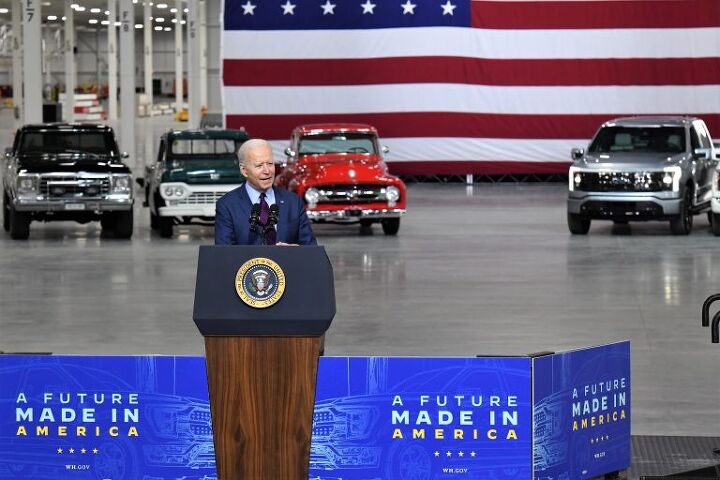
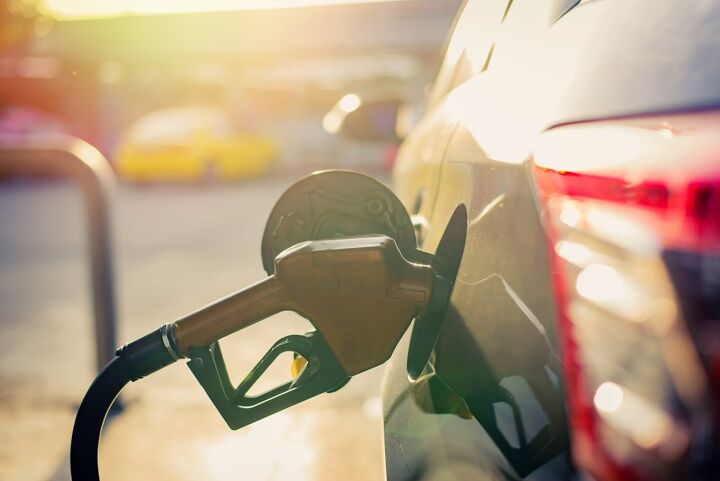

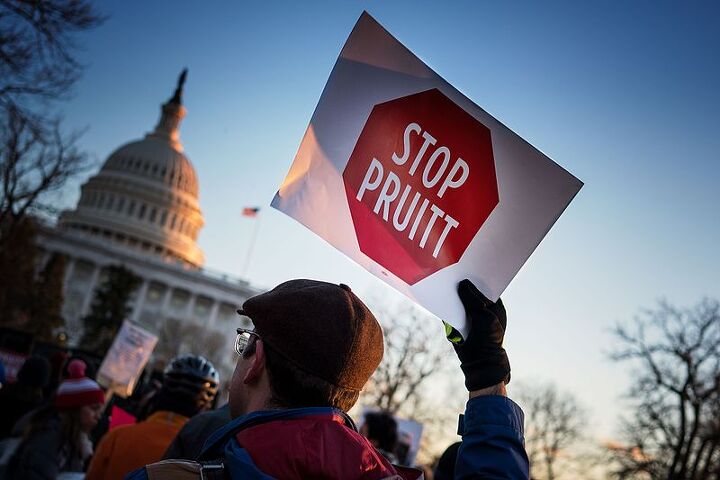

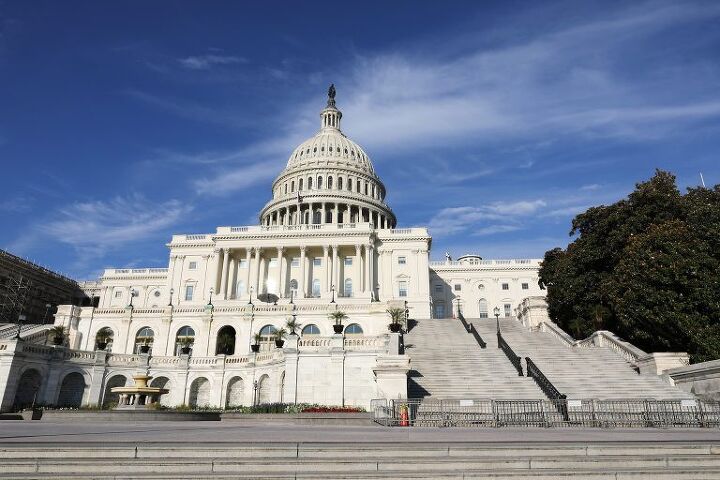

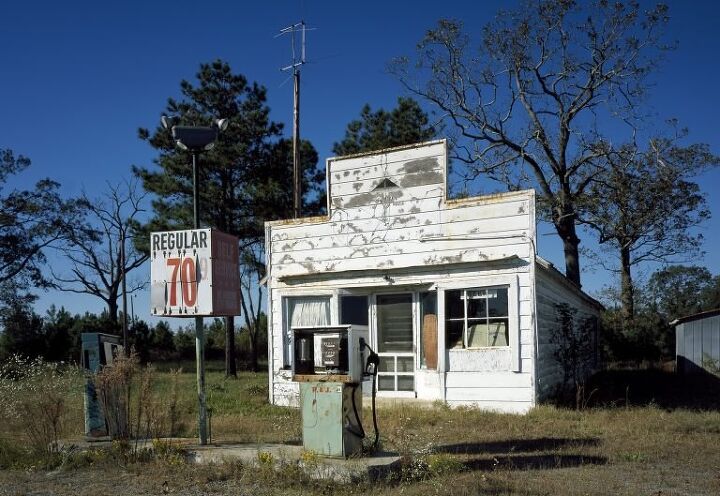


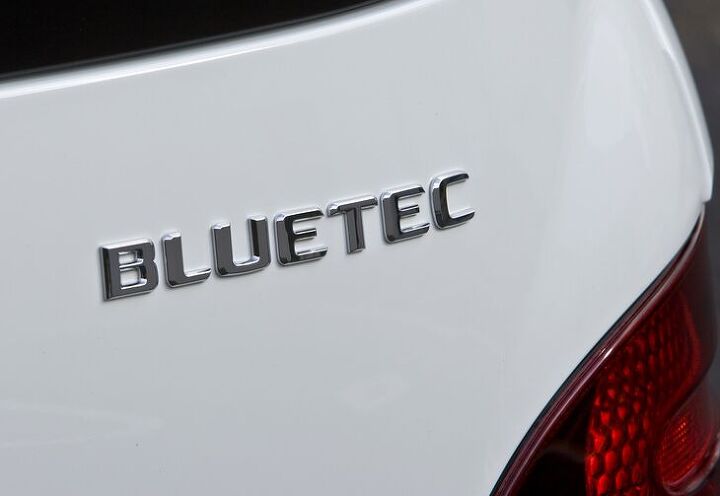



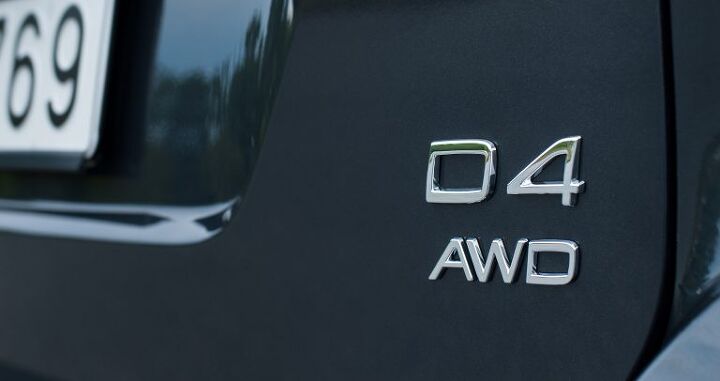












Recent Comments